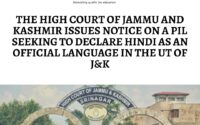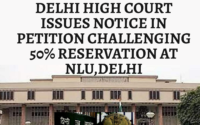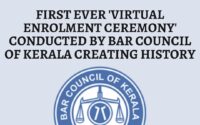Right To Reservation Not Fundamental Right: Supreme Court
Right To Reservation Not Fundamental Right: Supreme Court
-PRATHA WAGHMARE.
The Supreme Court on Thursday once again said that right to the reservation is not a fundamental right while rejecting pleas challenging the Centre’s decision to not grant a 50% reservation to OBCs in Tamil Nadu medical colleges.
HIGHLIGHTS
- Supreme Court on Thursday once again said that the right to a reservation is not a fundamental right.
- The apex court said so while rejecting pleas challenging the Centre’s decision to not grant 50% reservation to OBCs in Tamil Nadu medical colleges.
- SC has refused to entertain a bunch of pleas filed by various political parties against the Centre’s decision.
The Supreme Court on Thursday once again said that right to the reservation is not a fundamental right while rejecting pleas challenging the Centre’s decision to not grant 50% reservation to OBCs in Tamil Nadu medical colleges.
The Supreme Court bench of Justices L Nageswara Rao, Krishna Murari, and S Ravindra Bhat said that “right to the reservation is not a fundamental right”.
“Whose fundamental rights are being violated? Article 32 is available only for violation of a fundamental right. We assume you are all interested in fundamental rights of the citizens of Tamil Nadu,” said the court while replying to the DMK petitioner.
The Supreme Court has refused to entertain a bunch of pleas filed by various political parties against the Centre’s decision not to grant 50% reservation to OBCs as per Tamil Nadu law in medical seats surrendered by the state in the All India Quota for undergraduate, postgraduate and dental courses in 2020-21.
The court told lawyers for DMK, Vaiko, Anbumani Ramadoss, CPI(M), Tamil Nadu Congress and CPI that they are free to approach the Madras High Court with their pleas.
“You should withdraw this and go to the Madras High Court,” the bench said, adding that the liberty was granted to the political parties to do that.
The political parties have challenged the decision of Centre not granting 50% reservation to OBC’s in seats surrendered by Tamil Nadu in the All India Quota for undergraduate, postgraduate medical and dental courses in the current academic session.
DMK, in its plea, had said that it was opposing the denial of implementation of 50 percent OBC policy of the state, other than in central government institutions.
The Ruling AIADMK had alleged that there was no rational basis for not extending the benefit of 50 percent reservation for OBCs, as envisaged under the State laws of Tamil Nadu, to the State-captured seats in the All India Quota.
The Anna Dravida Munnetra Kazhagam (AIADMK) party said that in all past academic years since the inception of the All India Quota system, OBCs have been grossly under-represented in the All-India-Quota seats in undergraduate, diploma, PG diploma and postgraduate medical colleges across the country.
“The Petitioner (CPIM) is constrained to approach this court as the Respondents (Centre, MCI and others) herein have grossly failed to provide the statutory reservations for Other Backward Classes (OBC) i.e. Backward Classes (BC) and Most Backward Classes (MBC) and anomaly in granting reservation to SC-STs students in admissions to the Undergraduate and Post Graduate medical courses in all medical colleges in Tamil Nadu in the category of ‘state surrendered seats to the All India Quota’ in Government and private medical colleges other than the Central Government institutions,” the plea of CPI(M) had said.
The Court said it appreciates different political parties in Tamil Nadu coming together for a cause but the top court cannot entertain a plea.
When told that the premise of the cases in a violation of the law on the reservation by the Tamil Nadu government, the bench said that the petitioners should move the Madras High Court.
The Bench allowed them to withdraw the petitions and move the High Court for any relief.
By a ruling in February, the apex court had held there is no fundamental right to claim reservation in public jobs and no court can order a state government to provide for reservation to SC/STs, the Supreme Court has ruled.


